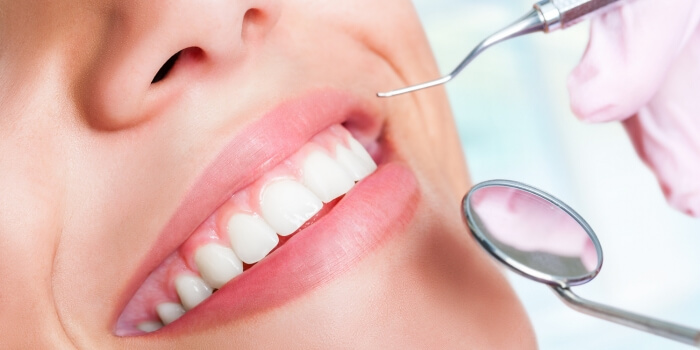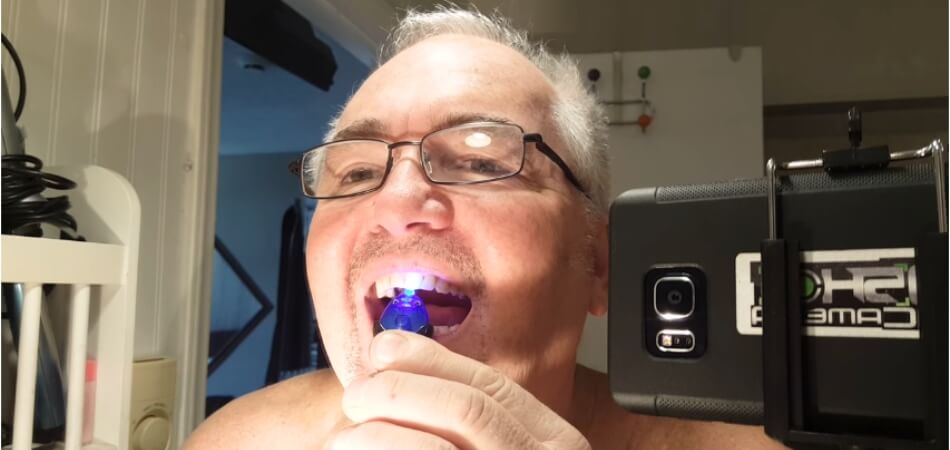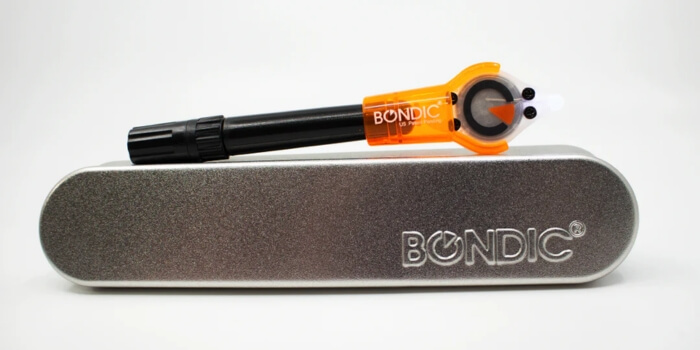Bondic is a versatile adhesive solution that attracts hobbyists and professionals alike with its unique capabilities. Unlike traditional adhesives, it relies on a liquid plastic formula that hardens under UV light, offering users precision and control over their bonding projects. But can you use Bondic on teeth?
No, Bondic is not recommended for use on teeth. It's not designed for oral applications and may not be safe for ingestion or long-term contact with saliva. In that case. You can consult a dentist for any dental concerns.
Do you want to know if Bondic works well with dental applications? Keep reading as we’ll explain whether Bondic is appropriate for your teeth or not and give you tips on how to use it safely and effectively.
How Does Bondic Work?
Bondic operates on a unique principle that sets it apart from traditional adhesives. Unlike standard glues that dry through evaporation or chemical reactions, Bondic relies on a specialized liquid plastic formula. When exposed to UV light, typically from an included LED device, the liquid polymer quickly hardens into a durable plastic.

This process, known as polymerization, occurs rapidly, allowing users to control the application precisely. Once cured, Bondic forms a strong bond with various materials, ranging from plastics and metals to ceramics and glass.
Unlike conventional adhesives, Bondic doesn't require pressure or clamping during the bonding process, offering convenience and versatility for various repair tasks.
Moreover, Bondic's unique formula enables users to build layers, making it ideal for filling gaps or reinforcing weakened areas. This feature sets it apart as a repair solution for intricate or irregular surfaces where traditional adhesives may struggle to provide adequate coverage.
With its ease of use and quick curing time, Bondic has garnered popularity among DIY enthusiasts and professionals seeking reliable, precise bonding solutions for a wide range of applications.
Can You Use Bondic on Teeth?
Basically, Bondic is an innovative adhesive solution that hardens under sunlight. But people often ask: Can you use Bondic on teeth?

Well, as it excels in various DIY tasks, it's crucial to approach dental applications with caution. Dentists generally advise against using Bondic on teeth due to safety concerns and lack of FDA approval for oral use. So you can’t use Bondic on your teeth.
The mouth's environment presents unique challenges, including exposure to moisture and bacteria, which could compromise the effectiveness and safety of Bondic. Consulting a dentist for proper treatment and guidance is essential for maintaining oral health and ensuring appropriate care for dental concerns.
Potential Hazards of Using Bondic on Teeth
It's very important to weigh the potential hazards carefully. Because its suitability for oral use raises valid concerns about safety and effectiveness.
Risk of Ingestion
Bondic is not designed for oral applications, raising concerns about accidental ingestion. The adhesive's chemical composition may pose health risks if swallowed, potentially causing irritation or toxicity. Moreover, once hardened, removing Bondic from the mouth can be challenging and may require professional intervention.
Adverse Reactions
Applying Bondic to teeth can lead to adverse reactions due to the mouth's sensitive tissues. Contact with oral mucosa or gums may cause irritation, inflammation, or allergic responses in some individuals. Furthermore, the heat generated during the polymerization process could exacerbate discomfort or tissue damage.
Inadequate Bond Strength
Bondic may not provide the necessary strength for durable dental repairs. Unlike dental adhesives specifically formulated for oral use, Bondic may not withstand the forces and moisture present in the mouth environment. This could lead to premature failure of the bond, requiring additional interventions or causing further damage.
Risk of Contamination
The mouth harbors bacteria and other microorganisms, posing a risk of contamination when using Bondic for dental repairs. Improper application or incomplete polymerization may create gaps where bacteria can thrive, increasing the risk of infection or decay. Maintaining proper oral hygiene becomes challenging with foreign materials in the mouth.
Lack of Professional Oversight
Attempting dental repairs with Bondic bypasses the expertise of dental professionals. Dentists undergo extensive training to assess and treat oral issues effectively. Relying on DIY solutions like Bondic for dental concerns may delay proper diagnosis and treatment, leading to complications or exacerbating existing problems.
Tooth Sensitivity
Applying Bondic to teeth may result in increased sensitivity, especially if the adhesive comes into contact with exposed dentin or nerve endings. This could lead to discomfort or pain, particularly when consuming hot, cold, or sweet foods and beverages.
Difficulty in Removing
Once applied, Bondic can be challenging to remove from the tooth surface, especially if excess adhesive seeps into surrounding tissues or hardens in unwanted areas. Removing Bondic improperly may damage tooth enamel or surrounding structures, requiring professional intervention to rectify.
Risk of Dislodgement
Bondic may not bond securely to tooth surfaces, especially in areas subject to constant pressure or movement, such as when chewing or speaking. This raises the risk of the adhesive dislodging prematurely, necessitating reapplication or alternative treatment methods to ensure lasting stability.
Potential for Misalignment
In cases where Bondic is used for cosmetic repairs or filling gaps between teeth, there's a risk of misalignment or improper bite occlusion. This can affect dental function and aesthetics, requiring corrective measures to realign teeth or adjust the Bondic application for optimal results.
It is always recommended to consult Dentists before doing anything unusual with your teeth. They can offer safe and effective solutions tailored to individual needs, ensuring optimal oral health outcomes and minimizing the risks associated with DIY alternatives like Bondic.
Where Should You Use Bondic?
Bondic offers precision and strength for various tasks from household fixes to crafting endeavors. Let’s see where you can use this strong adhesive:
- Household Repairs: Bondic excels in fixing broken plastic items like toys, gadgets, or appliance parts, providing a durable bond that withstands everyday use.
- Crafting and Hobby Projects: Use Bondic to create intricate designs or reinforce delicate components in arts and crafts projects, offering a precise and reliable adhesive solution.
- DIY Auto Repairs: Bondic can temporarily patch minor cracks or chips in car parts like headlights or bumpers, offering a quick and effective fix until proper repairs can be made.
- Outdoor Gear Maintenance: Repair camping equipment, hiking gear, or outdoor furniture with Bondic, ensuring lasting durability in various weather conditions.
- Jewelry and Accessories: Bondic offers a precise bonding solution for repairing jewelry, attaching small embellishments, or securing clasps, adding longevity to your favorite accessories.
Whether you're tackling household repairs, indulging in crafting hobbies or maintaining outdoor gear, Bondic proves to be a versatile ally. Its precision and durability make it a valuable addition to any DIY enthusiast's toolkit.
What are the Advantages of Using Bondic?
From precision application to versatile bonding capabilities, Bondic offers a range of benefits. Here are some of the benefits of Bondic:

- Precision Application: Bondic allows for precise control during application, ensuring targeted bonding without messy spills or excess adhesive.
- Versatile Bonding: It bonds to a wide range of materials, including plastics, metals, ceramics, and glass, making it suitable for various DIY projects and repairs.
- Quick Curing Time: With UV light activation, Bondic cures in seconds, offering a fast and efficient bonding solution for time-sensitive repairs.
- Durable Strength: Once cured, Bondic forms a strong and resilient bond that withstands everyday use and environmental factors, ensuring long-lasting durability for repaired items.
- Convenient Storage: Bondic's compact size and shelf stability make it convenient to store and use whenever needed, eliminating the need for bulky adhesive containers or messy applicators.
Frequently Asked Questions
Here are answers to some frequently asked questions to help you make an informed decision about its suitability for oral use.
Is Bondic Safe for Use on Teeth?
Bondic is not recommended for use on teeth due to potential safety concerns. Its chemical composition and lack of FDA approval for oral use raise risks of irritation or toxicity.
Can Bondic be Used to Fix Chipped Teeth?
Dentists advise against using Bondic for chipped teeth repair. Opting for professional dental treatment ensures proper assessment, treatment, and long-term oral health outcomes without compromising safety.
Does Bondic have any Adverse Effects on Oral Tissues?
Bondic may cause irritation or inflammation if it comes into contact with oral tissues. Its formulation and curing process may not be suitable for the delicate environment of the mouth.
Can Bondic Withstand the Moisture in the Mouth?
Bondic's durability in moist environments like the mouth is questionable. Its bond strength and resistance to moisture may not be sufficient for long-term dental repairs, posing risks of premature failure.
Is Bondic Easy to Remove from Teeth?
Removing Bondic from teeth can be challenging and may require professional intervention. Improper removal techniques could damage tooth enamel or surrounding tissues, necessitating additional dental procedures.
Are There Alternative Adhesives Recommended for Dental Repairs?
Dentists recommend using dental adhesives specifically formulated for oral use. These products undergo rigorous testing and have proven safety and effectiveness for bonding dental materials.
What Should I Do if I've Already Used Bondic on My Teeth?
If you've used Bondic on your teeth and experienced any adverse effects or concerns, consult a dentist promptly. Dentists can assess the situation, provide appropriate treatment, and address any potential complications.
Conclusion
Bondic offers versatility and convenience for various DIY projects, but its suitability for dental repairs remains questionable. That’s why many people often ask: Can you use Bondic on teeth?
The risks associated with using Bondic on teeth, including potential irritation, inadequate bonding strength, and challenges in removal, underscore the importance of seeking professional dental care.
Dentists possess the expertise and tools necessary to assess, treat, and ensure the long-term health and integrity of teeth and oral tissues.
Individuals can safeguard their oral health and mitigate the risks of potential complications or adverse effects by prioritizing professional dental treatment over DIY alternatives like Bondic.






